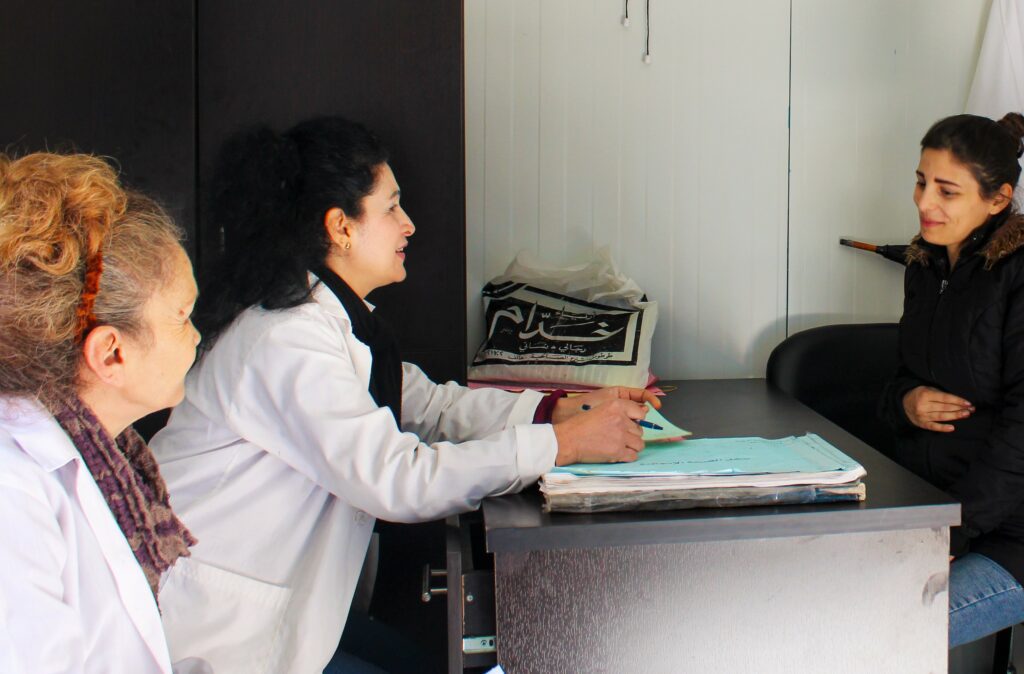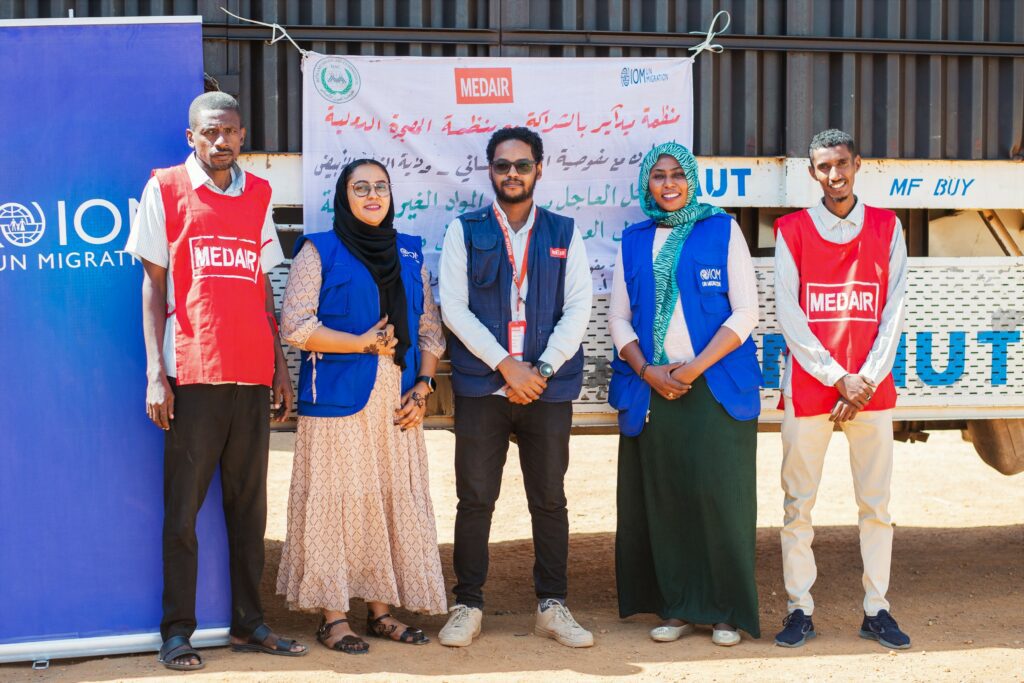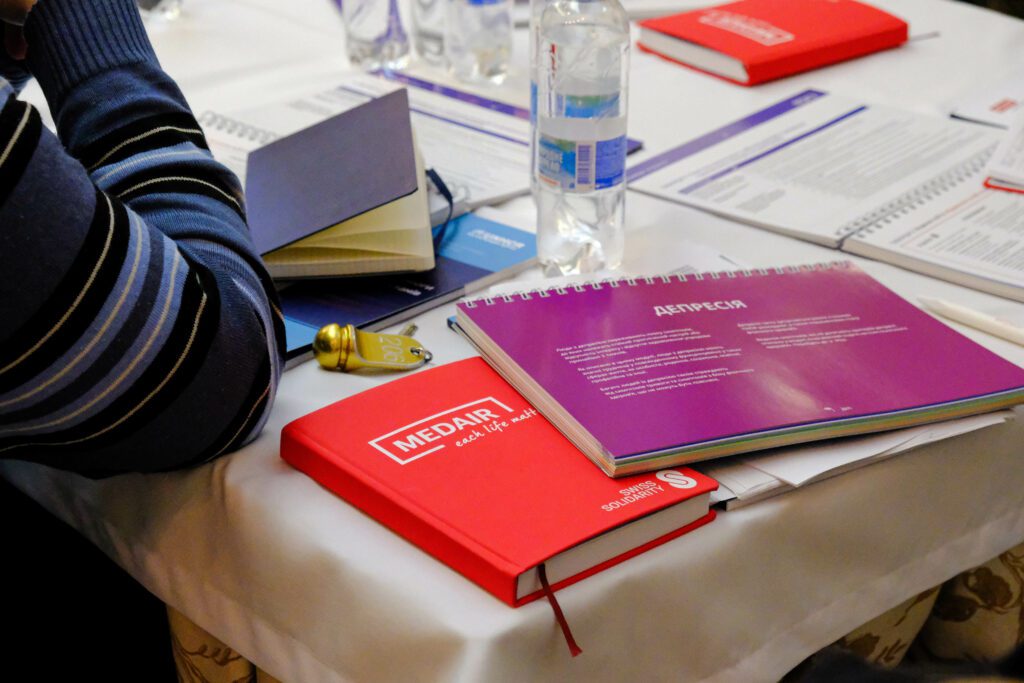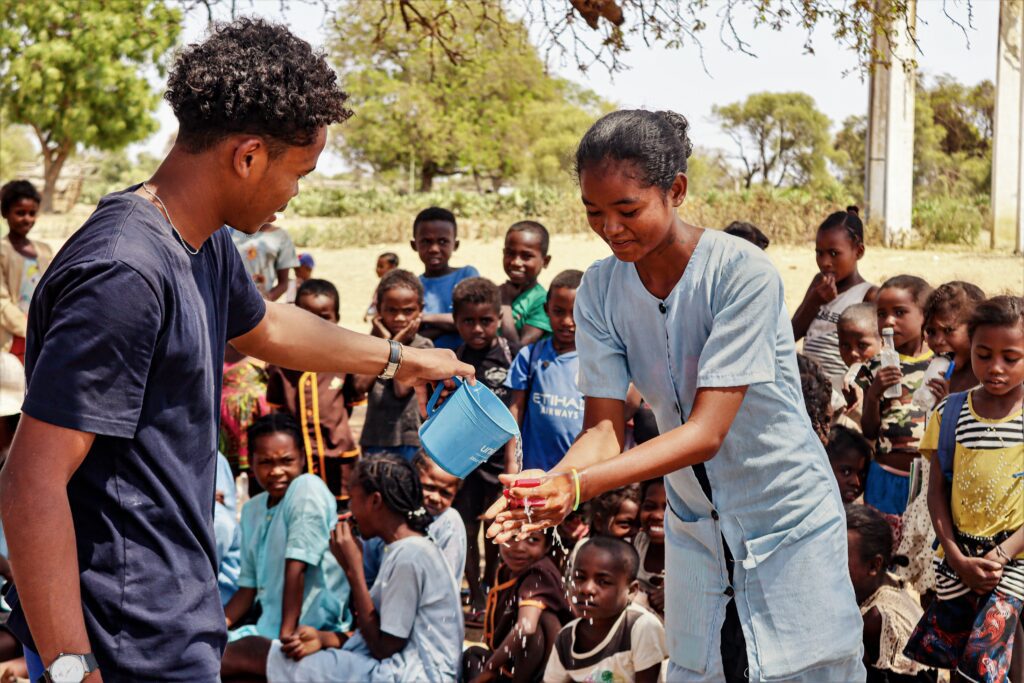Imagine your morning routine without access to clean water. What would change?
We depend on having clean water without registering that we use or even need it. We don’t think about how it impacts the way we spend our time and our overall health; it’s routine.
Globally, though, one in three people are without access to clean drinking water¹.
Mary was once in that one percentile. Three times a day she walked for one hour, each way, to fetch water from a stagnant swamp. The water was turbid, contaminated with bugs and unknown matter, but it was all she had to provide water for her family of sixteen. That’s six hours each and every day within a day allotted to getting water.
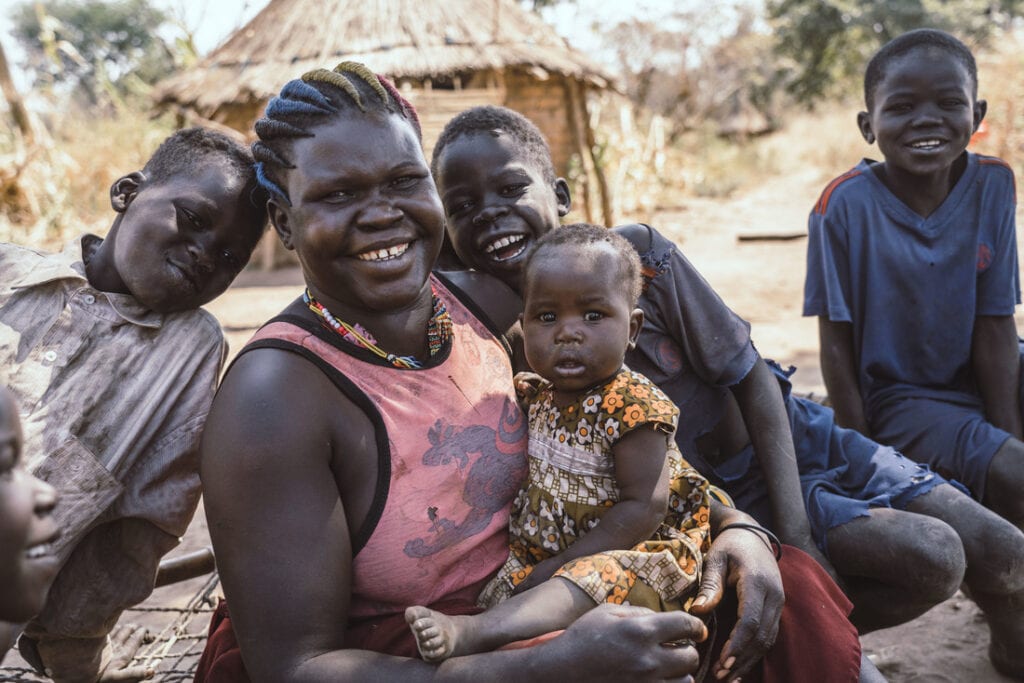
“[The journey] made it difficult to manage other tasks,” shares Mary, who is 42 years old. With a large family, water for laundry, shower, and washing dishes was used quickly. Almost every time Mary needed it, the water had already been consumed and another two-hour journey for more lay ahead.
In 2017, Medair was the first to successfully find water in Jelwan, Mary’s community in Aweil, South Sudan.
“There have been four organisation who tried to find water here. Only Medair came, and continued to try, and succeeded. Our children who live here wouldn’t have survived without clean water, and that’s why I am happy—because of the borehole here in Jelwan.
‘As clean water is now close, I have time to make food. We have time to manage household needs.”
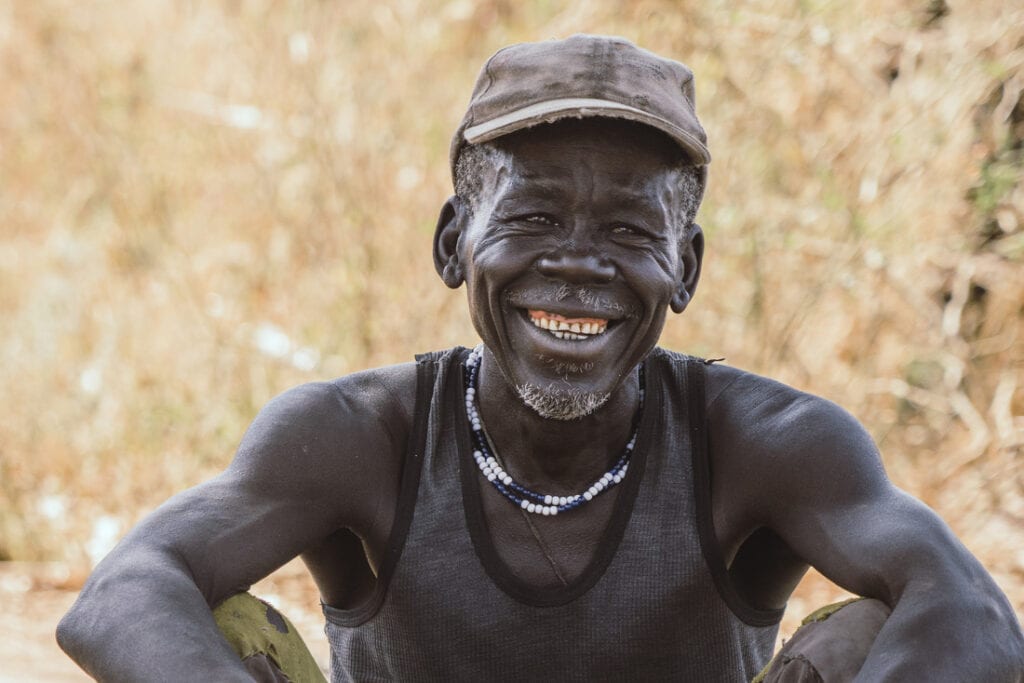
With a smile that couldn’t grow larger, Mary’s husband, Ungin, 62 years old, recounts the day water was found in their town, “That day was joyous. At that time, the women in the community would travel far to reach water and oh, we were so happy; the whole town danced.”
Several community members said they would have moved from their homes if it wasn’t for Medair finding water in Jelwan. The journey was too long and wasn’t sustainable for their families.
Ungin continues, “We would have needed to move closer to a water source, so we’ll always remember Medair. They are why we’re home here.”
Without safe water close to Jelwan, women and children, in particular, have no choice but to carry heavy containers long distances to collect dirty water that could make them sick.
Diarrhoea, often caused by consuming unsafe water, is one of three leading causes of child death². Nearly 297,000 children per year do not live to see their fifth birthday because of diseases caused by dirty water and poor sanitation³.
For Mary, safe water has transformed time spent into time saved. Six precious hours to collect water, has become mere minutes. It’s precious time that is now spent with her family and caring for her household needs.
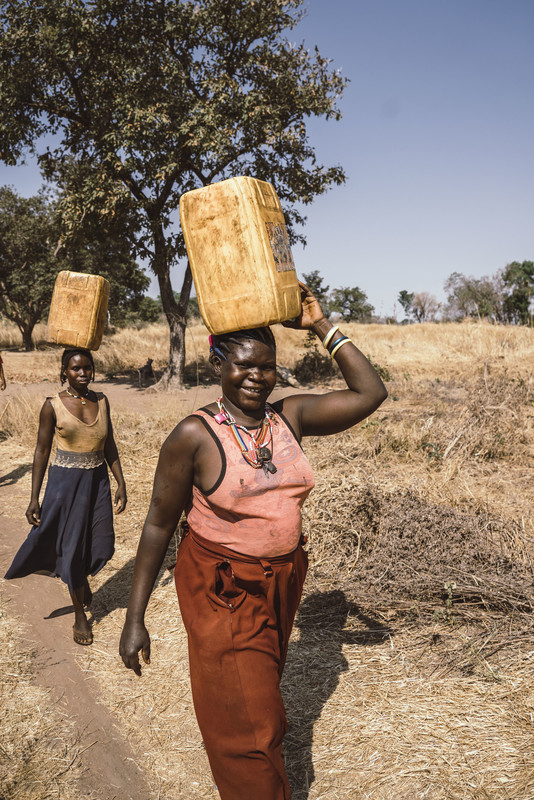
“My children used to become ill often before we had clean water. When the borehole was
established, community volunteers taught us how to maintain the borehole to keep it clean. They also taught us to fetch water using clean cups and containers to prevent sickness and keep diseases from spreading.
“It’s my hope that my children will also grow up always having access to clean and safe water. Because right now, we’re getting water from a safe source.”
Finding water in Jelwan was a challenge, but from a challenge comes change. And change we did. A community has been transformed— the impact of clean water lives on; it has been four years since we established a borehole in a town where many tried before.
On International Women’s Day; we celebrate Mary. We celebrate that Mary and her community are no longer burdened by a water crisis in their town—that Mary is able to spend more time investing in her livelihood, her family, and her community.
It’s for people like Mary that we continue our work and keep going to remote places like Jelwan.
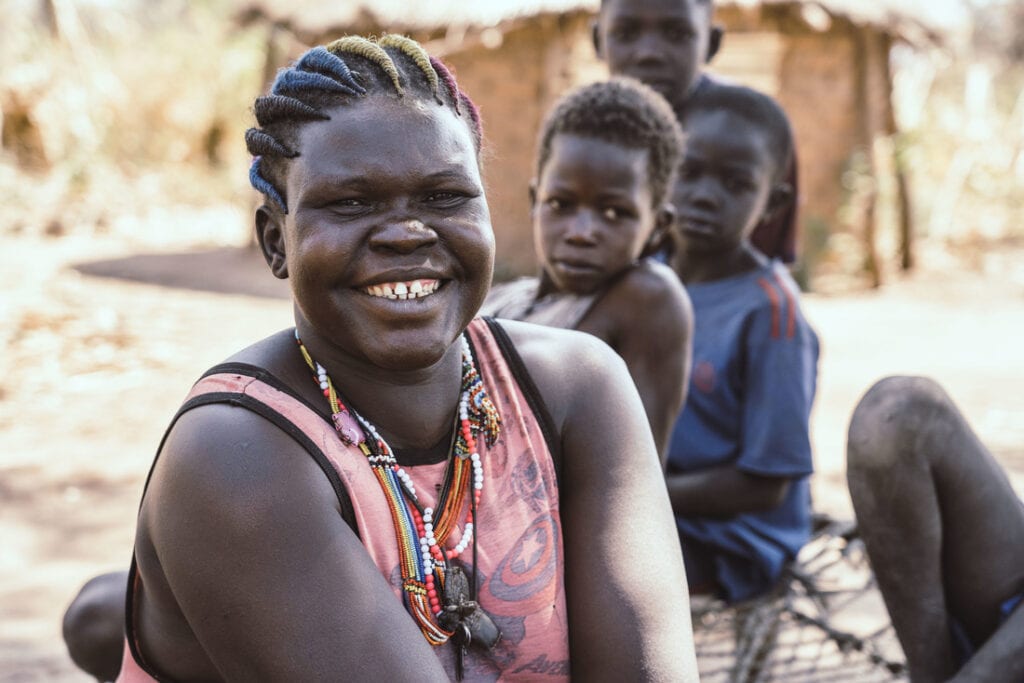
Medair services in Aweil are funded by UK aid from the UK government , the United States Agency for International Development (USAID), and generous private donors.
This content was produced with resources gathered by Medair field and headquarters staff. The views expressed herein are those solely of Medair and should not be taken, in any way, to reflect the official opinion of any other organisation.


